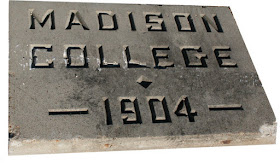My An Arkie's Faith column from the December 27, 2023, issue of The Polk County Pulse.
The morning dawned quiet and peaceful. It’s too quiet and peaceful. There was no excitement. There were no shouts of Merry Christmas. No laughter filled the air. The Christmas tree in the living room stood silently with presents all around. But the gifts remained untouched. No one was opening them. The living room was in perfect order, with no torn wrapping paper.
I sighed and thought, “It doesn’t feel like Christmas.” Across the street, cars filled the driveway, and people arrived for Christmas morning celebrations. But our house was quiet. No one would be at our home for Christmas. No bubbly, excited granddaughters to make the day festive. I thought about all the people who would not be with those they love this Christmas and felt empathy for them.
This would be my first Christmas without my Daddy. With no family here, a sadness washed over me. I sat in my chair, feeling just a bit sorry for myself. “What makes Christmas feel special?” I wondered. I decided it is being with people you love and feeling a part of a tradition. Our traditions help Christmas feel special.
Around the world, Christmas traditions vary considerably. I remember spending a Christmas in Puerto Rico in the 70s. Puerto Ricans celebrated Christmas, but there were no gifts on Christmas Day. January 6th, known as Three Kings Day, rather than December 25th, was the day for exchanging gifts. Children would gather grass, hay, or straw in shoeboxes for the horses and camels of the three kings, much like children in the U.S. leave cookies and milk for Santa and his reindeer. Good kids are rewarded with presents and candy on Three Kings Day.
The tradition of Three Kings Day comes from the story in the Gospel of Matthew of wise men from the East who came looking for a baby who was the King of the Jews. “The star which they had seen in the East went before them, till it came and stood over where the young Child was. When they saw the star, they rejoiced with exceedingly great joy. And when they had come into the house, they saw the young Child with Mary His mother, and fell down and worshiped Him. And when they had opened their treasures, they presented gifts to Him: gold, frankincense, and myrrh.” Matthew 2:9-11 (NKJV) This biblical story is the basis for gift giving at Christmas.
In much of Europe, it is Christkind that brings the Christmas presents. The tradition dates to the Reformation and Martin Luther. At this time, it was traditional to give children gifts on December 6th, St. Nicolas’s Day. Does the idea that Saint Nicolas delivers gifts sound familiar to you? But Martin Luther wanted to do away with the veneration of saints and saints’ days, so he started a gift-giving tradition on Christmas Eve. He told the children that the Christ Child had brought their presents. This tradition quickly took hold in Lutheran families.
While Martin Luther’s original intention was that the infant Jesus bring the children gifts, the image of a baby transformed into an angelic figure with golden hair topped with a crown and golden wings over time. A baby couldn’t deliver gifts, so a female angel with Christ-like qualities did the job. This angelic figure is known as Christkind. In much of Europe, Christkind is a symbol of Christmas along with Santa Claus. In this tradition, children never see Christkind in person. Parents tell them Christkind will not come and bring presents if they try to spot it. Christkind delivers gifts across Germany, Austria, Croatia, Hungary, Switzerland, the Czech Republic, and much of Latin America.
In Scandinavia, an essential tradition during the Christmas season is celebrating Saint Lucia. She was a young Christian girl who was killed in 304 A.D. Her history has been lost, and all we know for sure is that this brave woman lost her life during the persecution of Christians in the early fourth century. Her veneration spread to Rome so that by the sixth century, the whole church recognized her courage in defense of the faith.
Tradition tells us that she would secretly bring food to the persecuted Christians in Rome, hiding in the catacombs under the city. She would wear candles on her head to have both her hands free to carry things. St. Lucia’s Day is now celebrated by a girl dressing in a white dress with a red sash around her waist and a crown of candles on her head. The crown is made of evergreen Lingonberry branches that symbolize new life in winter. Many towns and villages choose a girl to play St. Lucia and lead a procession of carolers.
Whatever your Christmas traditions are, I hope they bring you joy and happiness. I have noticed that many Christians believe very strongly in their traditions. Traditions are not inherently good or bad, right or wrong. Some people defend traditions because the church has practiced it that way for years. Other people dislike tradition and want change just for the sake of change.
Christians should be neither “traditional” nor “non-traditional.” They should neither accept nor oppose a practice simply because it is a tradition. It doesn’t matter how long we have practiced something or when it began. What’s important is what God’s word says about it. If God’s word requires it, then we must do it. If God’s word forbids it, we must oppose it even if it is a tradition. If God’s word is silent, there is no problem with tradition. But I can’t expect all Christians to follow just because it is my tradition.
Gentle Reader, what are your Christmas traditions? Do they bring you joy? Do they remind you of Jesus and how important He is to you? Jesus wants you to have joy. He says, “These things I have spoken to you, that My joy may remain in you, and that your joy may be full.” John 15:11 (NKJV) I hope you have experienced love and joy this Christmas. “There are three things that endure: faith, hope, and love, and the greatest of these is love.” 1 Corinthians 13:13 (NCB)






.jpg)






.jpg)









.jpg)




























